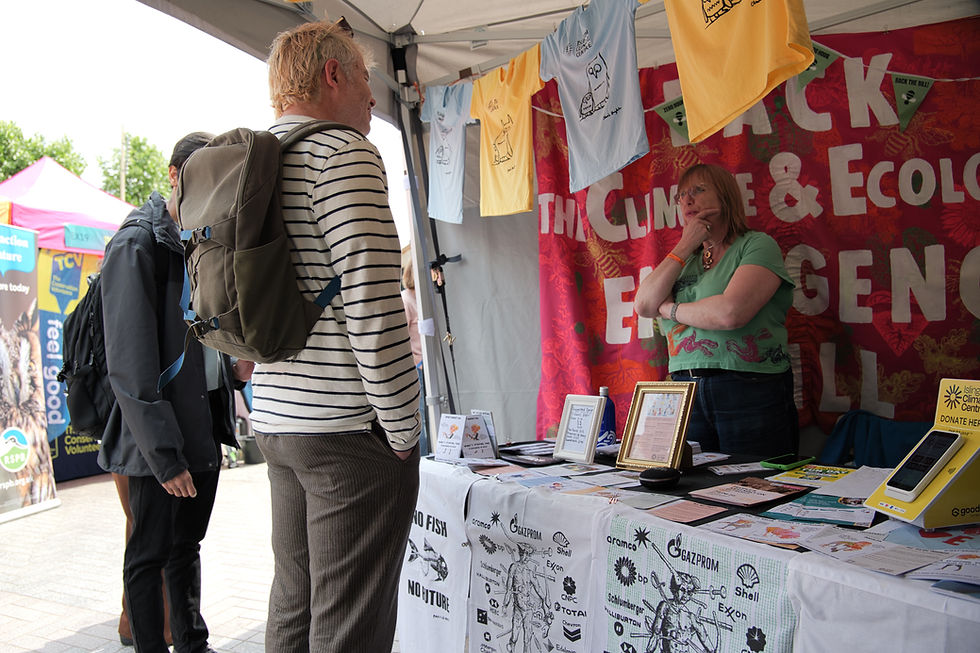Engaging Schools in Climate Action
- Bel Jacobs

- Oct 3, 2022
- 3 min read

On September 21st, the Islington Climate Centre hosted the first of we hope many events focusing on a key topic: how can schools engage in climate action - and by doing so, help our children and students develop leadership and problem solving skills, nurture resilience, and empower students to take action, both in their schools and local communities. Each of the three guests were uniquely placed to answer this.
Suzanne Gibbon is programme coordinator at London-based climate charity Ashden, who leads on Let's Go Zero, a campaign calling on the government for support and funding to help all UK schools reach zero carbon by 2030. Working with a coalition of sustainable school organisations, Let's Go Zero is uniting schools, teachers, and young people to drive change and spark climate action in communities across the country, reducing emissions, increasing biodiversity, and safeguarding our planet for future generations.
Henry Greenwood, founder of the Green Schools Project, talked through the Zero Carbon Schools Programme, offering a 360 approach in classrooms and communities, to support eco teams within zero carbon schools with practical projects. Lizzie Gimblett’s brilliant project Pupils Profit teaches pupils how to set up and operate Healthy Tuck Shops and Eco refill businesses as business models. The project is currently in the process of trying to quantify behaviour action via practical ation.
The event touched upon many themes in - and ideas for - climate education, including the value of these and similar initiatives in modelling new ways of being, such as working in groups and cooperation. Projects worked best when they formed partnerships with existing, like-minded groups in the local areas, meaning that students got to see sustainability in practice, not only within school environs but also the wider community. The idea of partnership also extended a philosophy of multi dimensional learning, allowing students to engage not just cognitively but physically and communally with the climate emergency.
There was a consensus that, within current education systems, the climate and ecological emergency has been siloed, whereas it is, in fact, the destabilised world we all now need to navigate. Both climate and ecological emergency need to be brought into all subjects, including the arts and humanities. Projects such as Mock COP, for example, allow students to model real world issues. New plans from the Department of Education call for more participation in ideas of circularity but offer very little guidance to teachers on how to embed sustainability and climate change into the school curriculum.
Funding was raised several times with panellists and audience alike encouraged to investigate resources such as Designing London’s Recovery, the Mayor of London’s £500,000 new challenge programme taking a collaborative, design-led approach to leverage innovation and creativity to tackle London's Recovery from the pandemic. Also raised was the potential of the UK’s Climate Action Plan, backed by the Ten Point Plan for a green industrial revolution, which will create and support up to 250,000 British jobs by 2030.
Challenges? Seeing behaviour change - and accepting that for many people, it is still the latter stages of the ‘refuse, reduce, repair, recycle’ equation that are easier to accept. Once again, collaborations and partnerships offered a key to breaking through bubbles, allowing teachers and students to access the network of existing alternative systems currently on offer. The panel touched upon the issue of climate anxiety: how to create a realistic understanding of the urgency, while retaining the possibility of agency and action. The answer: to address concerns about climate with solutions-focused learning; to allow students, as citizens of the future, to lead their responses; to encourage them in influencing business and government, via school strikes and beyond. The good news? That there will no shortage of work to do to repair and regenerate nature and society as we move forward into a challenged future.
More resources from the evening to follow.








Comments